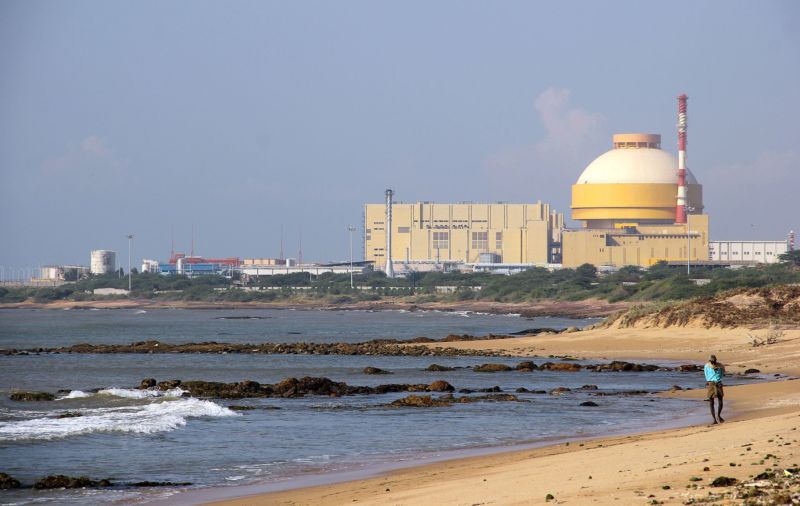
indiawaterportal.org
A former analyst for India's Nationwide Technical Analysis Group (NTRO) has tied a malware report revealed by VirusTotal to a cyber assault on India's Kudankulam Nuclear Energy Plant. The malware, recognized by researchers as North Korea's Dtrack, was reported by Pukhraj Singh to have gained "area controller-level entry" at Kudankulam. The assault has been reported to the federal government.
So, it is public now. Area
controller-level entry at Kudankulam Nuclear Energy Plant. The
authorities was notified method again. Extraordinarily mission-critical targets
have been hit. https://t.co/rFaTeOsZrw
pic.twitter.com/OMVvMwizSi—
Pukhraj Singh (@RungRage) October
28, 2019
The assault seemingly didn't have an effect on reactor controls, however it might have focused analysis and technical knowledge. The assault apparently centered on assortment of technical info, utilizing a Home windows SMB community drive share with credentials hard-coded into the malware to mixture recordsdata to steal. Dtrack was tied to North Korea's Lazarus risk group by researchers primarily based on code shared with DarkSeoul, a malware attack that wiped hard drives at South Korean media companies and banks in 2013.
Singh alluded to the assault in a September 7 tweet, through which he wrote, "I simply witnessed a casus belli within the Indian our on-line world and it sucks at each stage." He stated that he didn't uncover the intrusion himself however realized of it from "a 3rd celebration." Singh handed on the knowledge to India's Nationwide Cyber Safety Coordinator on September 4, and the third celebration shared the indications of compromise "over the previous days." Kaspersky later recognized the malware concerned as Dtrack, Singh stated.
Over response
Officers at Kudankulam have said that the plant is safe from cyber attack as a result of the management programs community is remoted from the plant's administrative networks, however they haven't addressed what knowledge might have been stolen. In a press launch, the coaching superintendent and knowledge officer for the Kudankulam Nuclear Energy Undertaking (KKNPP) stated that the plant "and different Indian Nuclear Energy Vegetation Management Techniques are standalone and never related to outdoors cyber community and Web... Any Cyber assault on the Nuclear Energy Plant Management System shouldn't be attainable." The official stated that each of the plant's reactors are presently up and working "with none operational or security considerations."
The KKNPP is India's largest nuclear facility and has been a supply of controversy since building started in 2002. Its activation was delayed for practically a decade by protests from native fishermen and different activists. A collaboration with Russia's Atomstroyexport (a subsidiary of Rosatom, Russia's government-owned nuclear vitality expertise firm), KKNPP is deliberate to function six reactors ultimately—however solely two are lively, and the plant has had quite a few questions of safety. The plant presently lacks an offsite spent nuclear gas storage facility, which prompted a courtroom battle to have the vegetation shut down till one was constructed.
There have been over 70 shutdowns since the reactors went active in 2013. And on October 19, the plant's second reactor was shut down as a consequence of a fault within the reactor's steam era, in response to KKNPP officers. The shutdown was not associated to the malware assault, officers asserted.
